Eurogamer's picks from the GOG Summer Sale
Up to 85% off the 17 titles in the Eurogamer collection.
The GOG Summer sale is now live (runs until midnight, Tuesday 20th), and the online PC game retailer invited us to curate our own selection from the games on offer. There are some of our favourite games of the last few years among the 17 games we picked - and a couple of classics from further back than that - at price reductions of up to 85%, so please do check it out. You can find the Eurogamer GOG sale hosted on GOG itself, but this seemed like a good opportunity to put together our own list singing the praises of these 17 gems of PC gaming, which you'll find below. Enjoy!
Compiled by Christian Donlan, Martin Robinson and Oli Welsh.
Skulls of the Shogun
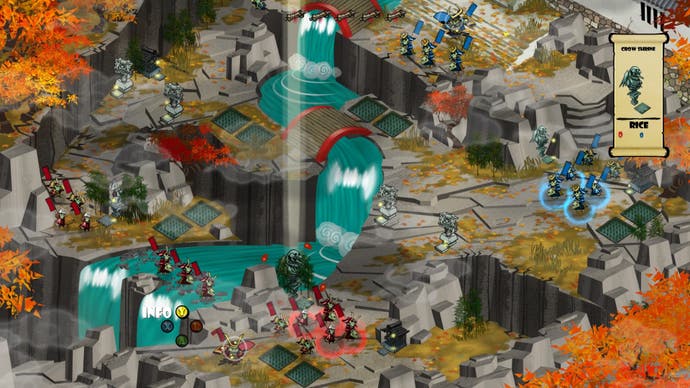
The previous game from Galak-Z developer 17-bit, Skulls of the Shogun is one of very few tactics games to have engaged with the brutal beauty and elegance of Advance Wars and emerged with something valuable. Resource caps mean that meat-grinder stalemates are a thing of the past, while tight, intricate maps tempt you into getting yourself in trouble. It helps that the campaign is full of wit and warmth and wisdom, and the art style, which sees your skeletal warriors battling through the afterlife, is utterly gorgeous. A modern - and slightly neglected - classic.
Papers, Please
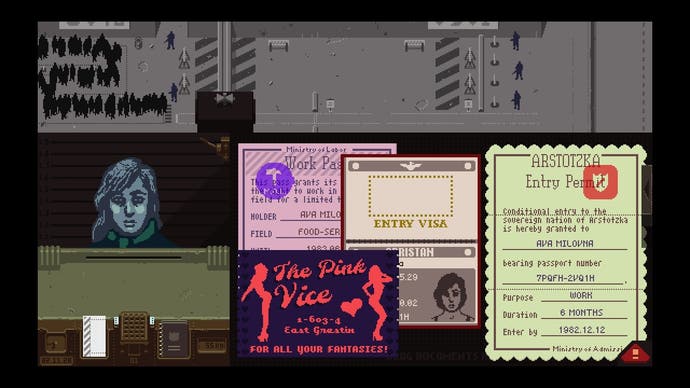
Lucas Pope's enthralling but bleak puzzle game may be decorated in the retro-cool imagery of the Cold War, but if anything it has even more power and relevance now than when it was released in 2014, as immigration and border control climb ever further up the agenda. It's a brilliant exploration of how the agonisingly personal gets caught up in the grinding machine of the political - and it's also, oddly enough, a fun game.
Virginia

Virginia is one of those pure narrative games that offers little obvious player agency - but it still gives those who engage with it plenty to do. The plot is gloriously elliptical and suggestive, and the world it is strung through is rich in detail and melancholic humour. Virginia plays very well moment-to-moment, as you take a rookie FBI agent through a strange, haunting investigation - but it works even better long after the credits have rolled, when you find yourself re-examining plot points for the hundredth time.
D4: Dark Dreams Don't Die
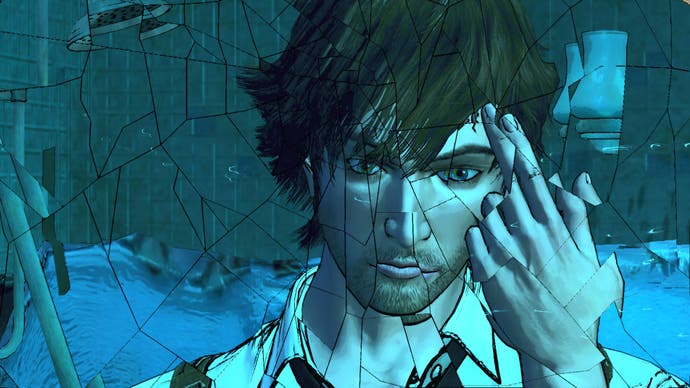
You can shove an owl. D4: Dark Dreams Don't Die, as its title might have already suggested, is a barmy game. The creation of Deadly Premonition director Swery, it's every bit as nutty as his previous games: a twisted graphic adventure in which you investigate the murder of your wife while coming across a memorable cast of crazies. If you've been watching the third season of Twin Peaks, you'll be braced for the kind of off-kilter thrills on offer here. Oh, and you get to shove an owl.
Singularity
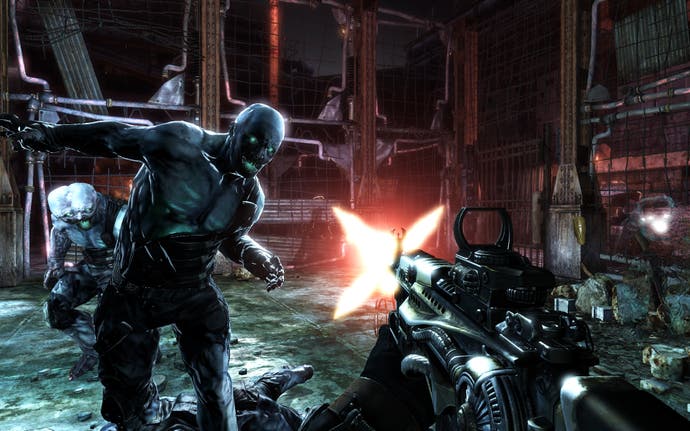
Singularity looked underwhelming in the build-up to release: another double-A first-person shooter with a time-control mechanic. Looking back, though, in an environment in which double-A shooters are suddenly rather thin on the ground, it's hard not to have a certain fondness for this knockabout tale of crypto-communists and alternate histories. Yes, this is a game where you have to reconstruct ancient crates before you smash them open to get ammo drops, but it's also a game in which you can kill enemies by reducing them to a weird larval state as well as riddling them with bullets. It goes on too long - and the train bit, as ever, deserved editing out entirely - but Singularity now feels like a welcome visitor from another timeline.
Legend of Grimrock
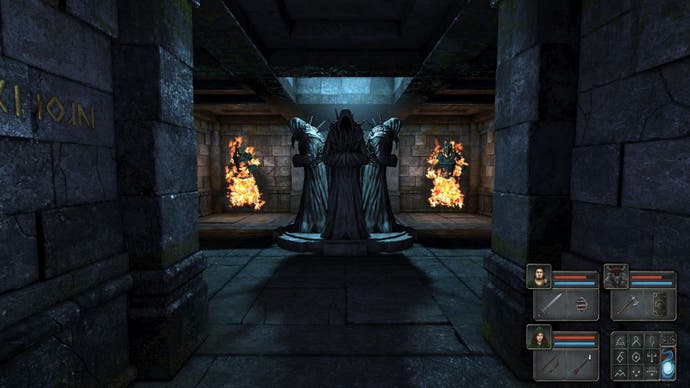
This is one of the most successful "spiritual successor" reboots of an ageing game design of recent years, perhaps surprisingly so given its inspiration - Dungeon Master - is particularly old-fashioned and inflexible. But that is what makes it work: there's more pleasure than just nostalgia to be had from navigating its grid-based, first-person labyrinths, battling skeletons and monsters, enjoying a respite from freedom and working within the game's right-angled restrictions.
The Witcher 3: Blood and Wine
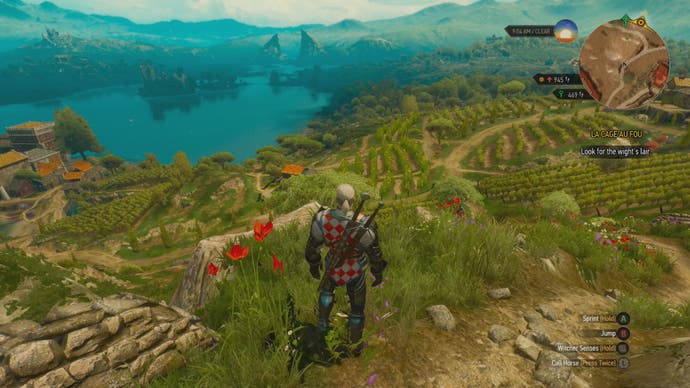
We're going to go ahead and assume that you already have The Witcher 3 on your hard drive (you really should), but you may not yet have indulged in its second, bigger, better expansion. Blood and Wine is a sun-soaked, bucolic escapade, a light-hearted yet still epic conclusion for Geralt's adventures that sets him up nicely for retirement in a fanciful wine country of errant knights and fairytale monsters. It's just gorgeous stuff, encapsulating everything great about this titan among modern RPGs - if you ran out of steam on the main plot, we would even consider taking the option to skip straight to Blood and Wine.
Civilization 4
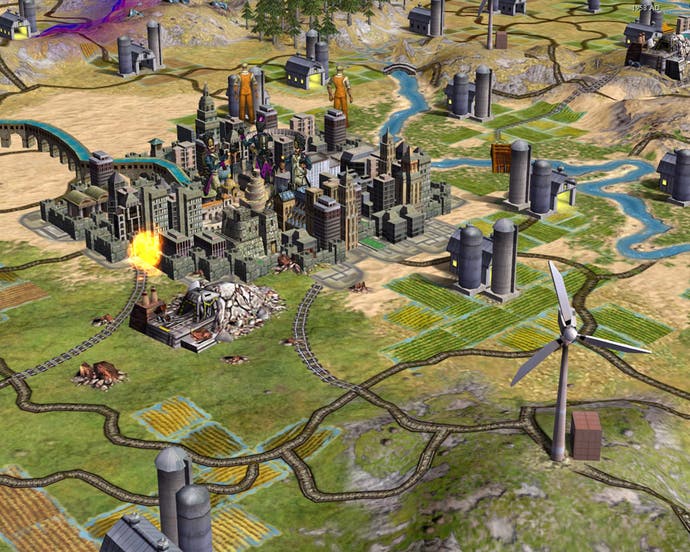
People will probably argue over the best Civ game for as long as our own civ bumbles along, but Soren Johnson's roll of the dice remains a favourite with many, and continues to feel like a high point for the series. The shift to 3D made for a game that was wonderfully atmospheric and readable, and the AI has arguably never been better. Civ 5 took a while to emerge from a wobbly launch, but even if its expansions eventually put it within Civ 4's reach, Johnson's take seems likely to remain the standard all other Civs are held to.
Luftrausers
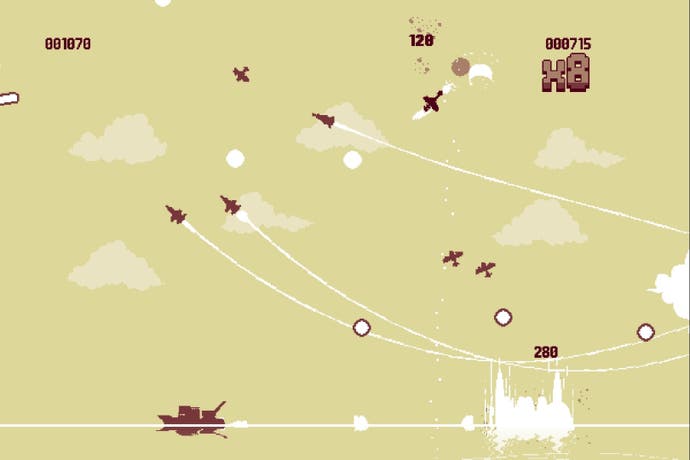
Vlambeer, masters of the arcade miniature, came up with this 2D dogfighting shmup in which your tiny fighter loops and dives over a sepia seascape, threading through bullet storms. You're constantly fighting gravity - Thrust-style - as well as the enemy, and you unlock new parts to customise your craft into all kinds of unlikely contraptions in pursuit of your perfect high-score build. Restless, irresistible, kinetic joy.
Star Wars: Knights of the Old Republic
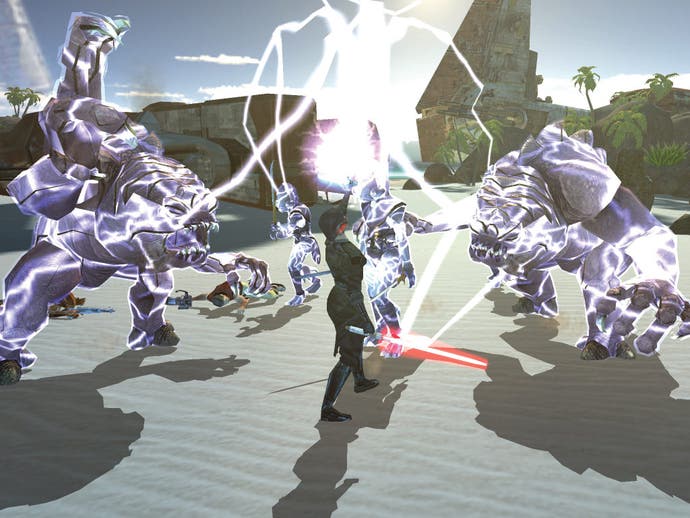
It might be difficult to imagine at a time when all that's touched by a lightsaber turns to gold, but at the turn of the century, all was not well in Star Wars land. The prequels' miserable trajectory robbed George Lucas' world of much of its sheen. Thank heavens, then, for BioWare's Knights of the Old Republic, a game that managed to restore much of the magic to Star Wars. A prequel set thousands of years before the original trilogy, KOTOR's role-playing gameplay might have dated, but its world and storytelling most definitely have not. This remains one of the most enthralling tales told in the Star Wars universe in any medium.
Sunless Sea

They had us at Coleridge, of course, but there is so much more to this almost indefinable exploration game than a reappropriation of the classics. Fallen London developers Failbetter Games draw their players into a subterranean ocean that laps at the shores of a reimagined metropolis. Chart the waters, lose yourself to madness, confront giant squid and maybe - just maybe - top everything off with a little cannibalism.
Steamworld Heist
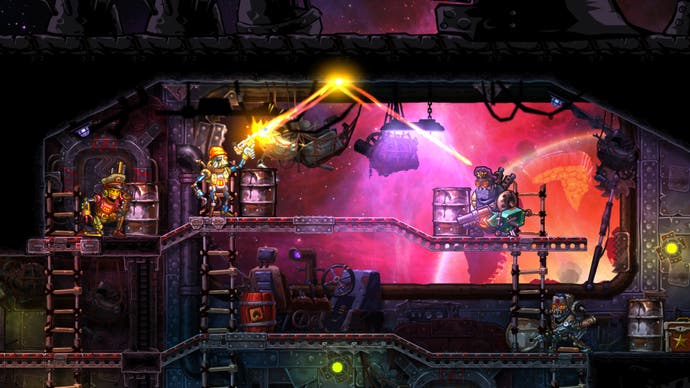
The Steamworld games are clearly the products of love and attention to detail, but while Dig is a beautifully straightforward dig-'em-up, Heist tackles the turn-based tactics genre - one of the least forgiving arenas in all of gaming. That it finds not just elegance but character and wit in its side-on approach is testament to the power of a small, deeply engaged team, determined to explore their own ideas.
Invisible, Inc.
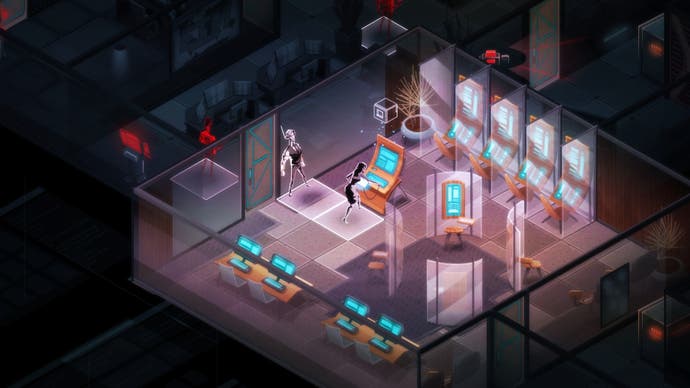
On the subject of turn-based tactics, we couldn't pass over one of our absolute favourite games of the last few years (Donlan's still in trouble for not giving it an Essential). Klei's Invisible, Inc. is a game of espionage and infiltration with a balance of risk and reward that really deserves to be called exquisite, and with a talent for summoning almost unbearable crescendos of tension from its compact, procedurally generated maps. Still playing it, two years on. (The Contingency Plan expansion, also reduced in the sale, is well worth having.)
Frozen Cortex
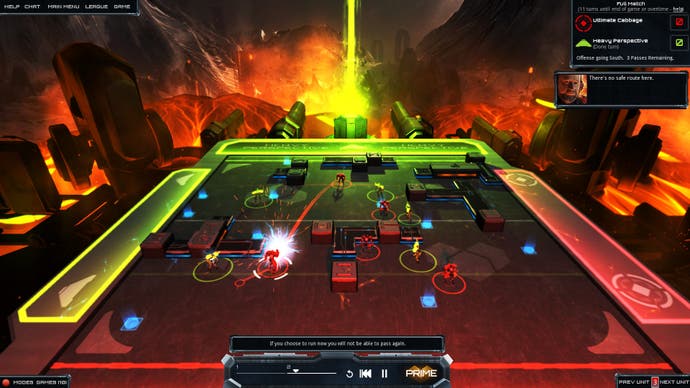
Frozen Cortex may not have made the impact of its predecessor Frozen Synapse, but this beautiful take on simultaneous multiplayer battling is arguably the better game. Combat is no less brutal when the venue moves to a futuristic sports stadium, and American Football is the ideal template for a game of prediction and bluffing, in which both sides make their moves in secret, and then see how they play out all at once. Wonderful stuff.
Spelunky
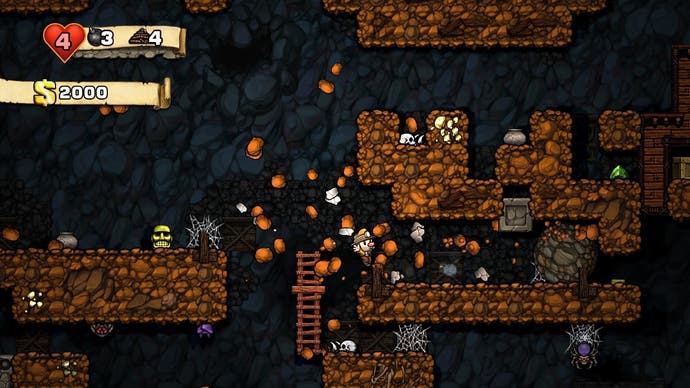
The only reason we hesitated over this recommendation was a worry that you all owned it already. Certainly the greatest application of the 'roguelike' design - die and you go back to the start of a changed map - to a genre other than tactics or role-playing, Spelunky is also an incredible pure 2D platformer that can go toe-to-toe with the 16-bit greats on dynamic tightness - Mario included. And daily challenge means you will play it forever.
The Witness
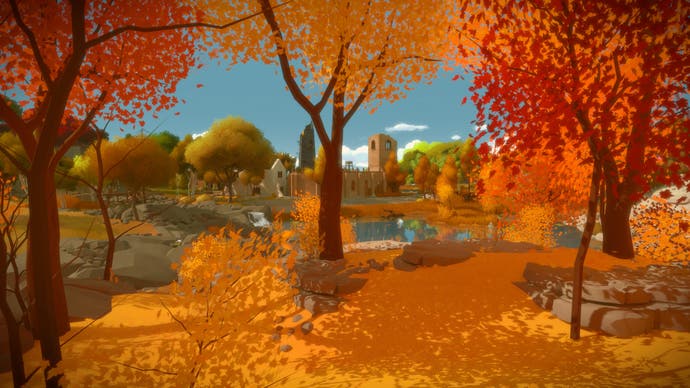
Jonathan Blow's epic puzzle game can be compared to the iconic Myst - you explore a deserted island, beautiful yet inert, solving riddles to reveal its secrets - but it is a far better piece of game design than that suggests. The Talos Principle is perhaps a fairer comparison, but really Blow has no peer as a puzzle designer of pure intellectual rigour. Within its picturesque yet mournful setting lies the stern minimalist challenge posed by hundreds of puzzle panels, all variations on a single theme: draw a single line to solve the maze. The delicacy, range, pacing and balance The Witness extracts from this basic puzzle gameplay is just breathtaking. It's a work of art.
Fez
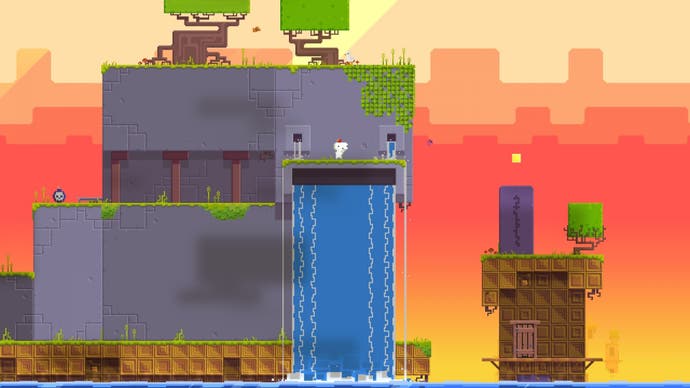
And here's another work of art, just as enigmatic as The Witness, but more personable and charming than you might expect from its cantankerous creator Phil Fish. A pixel-art platforming adventure that started development before such things were cool and came out arguably after their moment had passed, Fez is nonetheless the best of the lot, a spellbinding game whose mystery lives as much in its ineffable atmosphere as its Zelda-style lateral thinking puzzles or its quasi-ARG riddles. Also, Disasterpeace's music is one of the all-time great video game scores.

